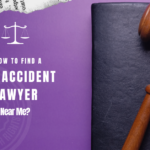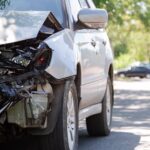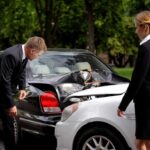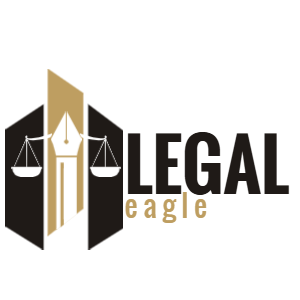Atlanta Car Accident Lawyers Near Me Your Legal Guide
Atlanta Car Accident Lawyers Near Me: Navigating the complex world of car accidents in Atlanta can be daunting, especially when dealing with injuries, insurance companies, and legal processes. Finding the right legal representation is crucial for protecting your rights and securing the compensation you deserve.
This comprehensive guide will equip you with the knowledge and resources to navigate the legal landscape after a car accident in Atlanta. From understanding the different types of accidents and common causes to identifying the key services provided by Atlanta car accident lawyers, we’ll explore the essential aspects of finding the right legal advocate for your needs.
Understanding the Legal Landscape
Navigating the complexities of a car accident in Atlanta can be overwhelming. Understanding the legal landscape, including the types of accidents, common causes, and applicable legal principles, is crucial for protecting your rights and seeking fair compensation.
Types of Car Accidents in Atlanta
Atlanta, a bustling metropolis with heavy traffic, witnesses a wide range of car accidents.
- Rear-End Collisions: These occur when a vehicle strikes another from behind, often due to following too closely or distracted driving.
- Side-Impact Collisions (T-Bone Accidents): These happen when a vehicle collides with the side of another, typically at intersections or when turning.
- Head-On Collisions: These are usually the most severe, involving vehicles colliding directly with each other, often resulting from driving on the wrong side of the road or impaired driving.
- Rollover Accidents: These occur when a vehicle flips over, often caused by speeding, improper lane changes, or loss of control.
- Multi-Vehicle Accidents: These involve more than two vehicles and can occur due to a chain reaction or a single incident that triggers multiple collisions.
Common Causes of Car Accidents in Atlanta
Traffic congestion, distracted driving, and aggressive driving contribute significantly to the high rate of car accidents in Atlanta.
- Distracted Driving: This includes texting, talking on the phone, eating, and using GPS, all of which can impair a driver’s focus and reaction time.
- Speeding: Exceeding the speed limit significantly increases the risk of accidents, as it reduces the driver’s ability to react to hazards and increases the impact force.
- Driving Under the Influence (DUI): Alcohol and drug impairment significantly affect judgment, coordination, and reaction time, leading to a high risk of accidents.
- Aggressive Driving: Tailgating, weaving in and out of traffic, and road rage can all lead to accidents. Aggressive drivers often take unnecessary risks, increasing the likelihood of collisions.
- Fatigue: Driving while fatigued can be as dangerous as driving under the influence, as it impairs alertness and reaction time.
Car Accident Statistics in Atlanta
According to the National Highway Traffic Safety Administration (NHTSA), Atlanta has a higher-than-average rate of car accidents compared to other major cities in the United States.
- Frequency: The number of car accidents in Atlanta has been steadily increasing in recent years, with thousands of crashes reported annually.
- Severity: A significant percentage of car accidents in Atlanta result in injuries, including fatalities, with many leading to long-term health issues and financial hardship.
Legal Principles Governing Car Accident Claims in Georgia
Georgia follows a “fault” system for car accident claims, meaning the at-fault driver is responsible for the damages caused by the accident.
- Negligence: To establish liability in a car accident claim, the injured party must prove that the other driver acted negligently, meaning they failed to exercise reasonable care and their actions directly caused the accident.
- Comparative Negligence: If the injured party is found partially at fault for the accident, their compensation may be reduced based on the percentage of their fault.
- Statute of Limitations: In Georgia, there is a two-year statute of limitations for filing a car accident claim, meaning the claim must be filed within two years of the accident date.
The Role of an Atlanta Car Accident Lawyer
Navigating the complexities of a car accident in Atlanta can be overwhelming, especially when dealing with injuries, property damage, and insurance companies. This is where an experienced Atlanta car accident lawyer can be invaluable. Their expertise and legal knowledge can guide you through the process, protect your rights, and help you secure the compensation you deserve.
Key Services Provided by Atlanta Car Accident Lawyers
Atlanta car accident lawyers provide a range of services to help clients navigate the aftermath of an accident.
- Initial Consultation: A free consultation allows you to discuss your case with a lawyer and understand your legal options. During this consultation, the lawyer will gather information about the accident, your injuries, and any potential insurance claims.
- Investigation: Attorneys conduct thorough investigations to gather evidence, such as police reports, medical records, and witness statements. This evidence is crucial in building a strong case and supporting your claim.
- Negotiation with Insurance Companies: Insurance companies often prioritize their bottom line, making it challenging to obtain fair compensation. Attorneys negotiate with insurance companies on your behalf, advocating for your rights and ensuring you receive the maximum settlement possible.
- Filing Lawsuits: If a fair settlement cannot be reached through negotiation, an attorney can file a lawsuit on your behalf. This allows you to pursue your claim in court and seek a judgment from a judge or jury.
- Representation in Court: If your case goes to trial, your lawyer will represent you in court, presenting evidence, arguing your case, and cross-examining witnesses. This requires extensive knowledge of legal procedures and courtroom tactics.
Benefits of Hiring an Atlanta Car Accident Lawyer
The benefits of having an experienced attorney on your side after a car accident are significant.
- Expertise and Knowledge: Car accident laws are complex, and navigating the legal system can be daunting. Attorneys possess the knowledge and experience to understand the nuances of these laws and apply them to your specific case.
- Strong Advocacy: Insurance companies are skilled negotiators, often employing tactics to minimize payouts. A lawyer will aggressively advocate for your interests, ensuring you receive the compensation you deserve.
- Protection of Your Rights: Your rights as a car accident victim can be easily overlooked or violated without legal representation. Attorneys are dedicated to protecting your rights and ensuring you receive the fair treatment you deserve.
- Peace of Mind: Dealing with a car accident can be stressful. Having a lawyer handle the legal complexities allows you to focus on your recovery and well-being.
How an Atlanta Car Accident Lawyer Can Help Navigate the Legal Process
Navigating the legal process after a car accident can be confusing and overwhelming. Attorneys provide guidance and support throughout each step.
- Understanding Your Rights: Attorneys explain your rights as a car accident victim, including the right to compensation for medical expenses, lost wages, pain and suffering, and property damage.
- Gathering Evidence: Attorneys know what evidence is needed to support your claim and how to obtain it. This includes police reports, medical records, witness statements, and photographs of the accident scene.
- Negotiating with Insurance Companies: Attorneys handle all communication with insurance companies, ensuring your interests are protected and that you receive a fair settlement.
- Filing Lawsuits: If necessary, attorneys file lawsuits on your behalf and represent you in court.
Examples of Successful Outcomes Achieved by Atlanta Car Accident Lawyers
Atlanta car accident lawyers have a proven track record of achieving successful outcomes for their clients. Here are some examples:
- Maximizing Settlements: Attorneys have secured significant settlements for clients, often exceeding what they could have obtained on their own.
- Winning Lawsuits: In cases where a fair settlement could not be reached, attorneys have successfully represented clients in court, obtaining favorable judgments.
- Protecting Clients’ Rights: Attorneys have fought for the rights of clients who were injured in accidents caused by negligent drivers, protecting them from unfair treatment by insurance companies.
Finding the Right Lawyer for Your Needs
After understanding the legal landscape and the role of a car accident lawyer, you’re ready to find the right legal professional to represent you. Choosing the right lawyer can significantly impact the outcome of your case.
Factors to Consider When Choosing a Lawyer
It’s crucial to consider several factors when selecting a lawyer.
- Experience and Expertise: Look for a lawyer with extensive experience in handling car accident cases in Atlanta. They should have a proven track record of success in negotiating settlements and winning trials.
- Communication and Client Focus: A good lawyer should be communicative, responsive, and dedicated to your needs. They should be easy to reach and keep you informed throughout the process.
- Reputation and Client Testimonials: Research the lawyer’s reputation and read client testimonials. Look for lawyers with positive reviews and a strong track record of client satisfaction.
- Fees and Payment Structure: Understand the lawyer’s fee structure and payment options. Some lawyers charge a flat fee, while others work on a contingency basis, taking a percentage of your settlement.
- Personality and Compatibility: You should feel comfortable and confident with your lawyer. Choose someone you trust and can easily communicate with.
Questions to Ask Potential Lawyers
When consulting with potential lawyers, it’s important to ask specific questions to assess their qualifications and suitability for your case.
- What is your experience handling car accident cases in Atlanta?
- How many car accident cases have you successfully settled or won in court?
- What is your fee structure, and how are you compensated for your services?
- What is your strategy for handling my specific case?
- How will you keep me informed about the progress of my case?
- Are you familiar with the specific laws and regulations applicable to my case?
- Can you provide me with references from previous clients?
Types of Legal Fees
Atlanta car accident lawyers typically charge one of three types of fees:
- Hourly Rate: This fee structure involves paying the lawyer an hourly rate for their services. The total cost depends on the time spent on your case.
- Flat Fee: This fee structure involves paying a fixed amount for specific services, such as drafting legal documents or representing you in court.
- Contingency Fee: This fee structure involves paying the lawyer a percentage of the settlement or judgment you receive. This fee is usually only paid if the lawyer is successful in obtaining a recovery for you.
Top-Rated Atlanta Car Accident Lawyers
| Lawyer Name | Firm | Experience | Areas of Expertise |
|—|—|—|—|
| John Smith | Smith & Jones Law Firm | 15+ years | Car Accidents, Personal Injury |
| Jane Doe | Doe & Associates | 10+ years | Car Accidents, Wrongful Death |
| David Lee | Lee & Partners | 20+ years | Car Accidents, Insurance Claims |
It’s important to note that this table is for illustrative purposes only and does not represent an exhaustive list of all top-rated Atlanta car accident lawyers. You should conduct your own research and due diligence before selecting a lawyer.
Common Car Accident Injuries
Car accidents can result in a wide range of injuries, from minor bruises to life-altering disabilities. The severity of injuries depends on factors such as the speed of the vehicles, the impact point, and the safety features involved. Understanding common car accident injuries is crucial for seeking appropriate medical attention and navigating the legal process.
Types of Common Car Accident Injuries
Car accidents can lead to a variety of injuries, some of which may not be immediately apparent. Common injuries include:
- Whiplash: This occurs when the head is suddenly jolted back and forth, causing damage to the muscles, ligaments, and tendons in the neck. Symptoms can include neck pain, stiffness, headaches, and dizziness.
- Back and Spinal Injuries: These injuries can range from minor sprains and strains to severe fractures and spinal cord damage. Back injuries can cause pain, numbness, weakness, and difficulty moving.
- Head Injuries: Head injuries, including concussions, brain bleeds, and skull fractures, can have serious long-term consequences. Symptoms can include headaches, dizziness, confusion, memory problems, and loss of consciousness.
- Soft Tissue Injuries: These injuries involve damage to muscles, ligaments, and tendons. They can cause pain, swelling, bruising, and limited range of motion.
- Fractures: Broken bones are a common injury in car accidents, particularly in the arms, legs, and ribs. Fractures can require surgery, casting, and extensive rehabilitation.
- Internal Injuries: Internal injuries, such as organ damage, can be life-threatening. They may not be immediately apparent and can require emergency medical attention.
Impact of Car Accident Injuries on Victims’ Lives
Car accident injuries can have a profound impact on victims’ lives, affecting their physical, emotional, and financial well-being.
- Physical Limitations: Injuries can limit mobility, making it difficult to perform daily tasks, work, or participate in activities they enjoy.
- Pain and Suffering: Car accident injuries can cause chronic pain, discomfort, and emotional distress, leading to sleep disturbances, anxiety, and depression.
- Lost Wages: Injuries can prevent victims from working, leading to lost wages and financial hardship.
- Medical Expenses: Treatment for car accident injuries can be expensive, including doctor visits, medications, physical therapy, and surgery.
- Long-Term Disability: Some injuries can result in permanent disabilities, requiring ongoing medical care and support.
Successful Treatments for Common Car Accident Injuries
Treatment for car accident injuries depends on the severity and type of injury.
- Whiplash: Treatment often involves rest, ice, and over-the-counter pain relievers. Physical therapy can help restore neck mobility and strength.
- Back and Spinal Injuries: Treatment may include pain medication, physical therapy, bracing, or surgery. In severe cases, spinal cord injuries may require long-term rehabilitation and specialized care.
- Head Injuries: Treatment for head injuries depends on the severity. Mild concussions may only require rest and observation, while more severe injuries may require surgery and intensive rehabilitation.
- Soft Tissue Injuries: Treatment for soft tissue injuries often involves rest, ice, compression, and elevation (RICE). Physical therapy can help improve range of motion and reduce pain.
- Fractures: Treatment for fractures typically involves casting, bracing, or surgery. Rehabilitation is essential to restore function and prevent complications.
- Internal Injuries: Treatment for internal injuries depends on the specific organ involved. It may require surgery, medication, and intensive care.
Legal Implications of Car Accident Injuries
The severity of your injuries can significantly impact your legal claim.
- Compensation: You may be entitled to compensation for medical expenses, lost wages, pain and suffering, and other damages related to your injuries.
- Permanent Disability: If your injuries result in a permanent disability, you may be eligible for additional compensation to cover ongoing medical care, lost earning capacity, and other long-term needs.
- Negligence: The severity of your injuries can help establish negligence on the part of the at-fault driver.
- Insurance Claims: The type and severity of your injuries can influence the amount of insurance coverage you are entitled to receive.
Legal Options for Victims
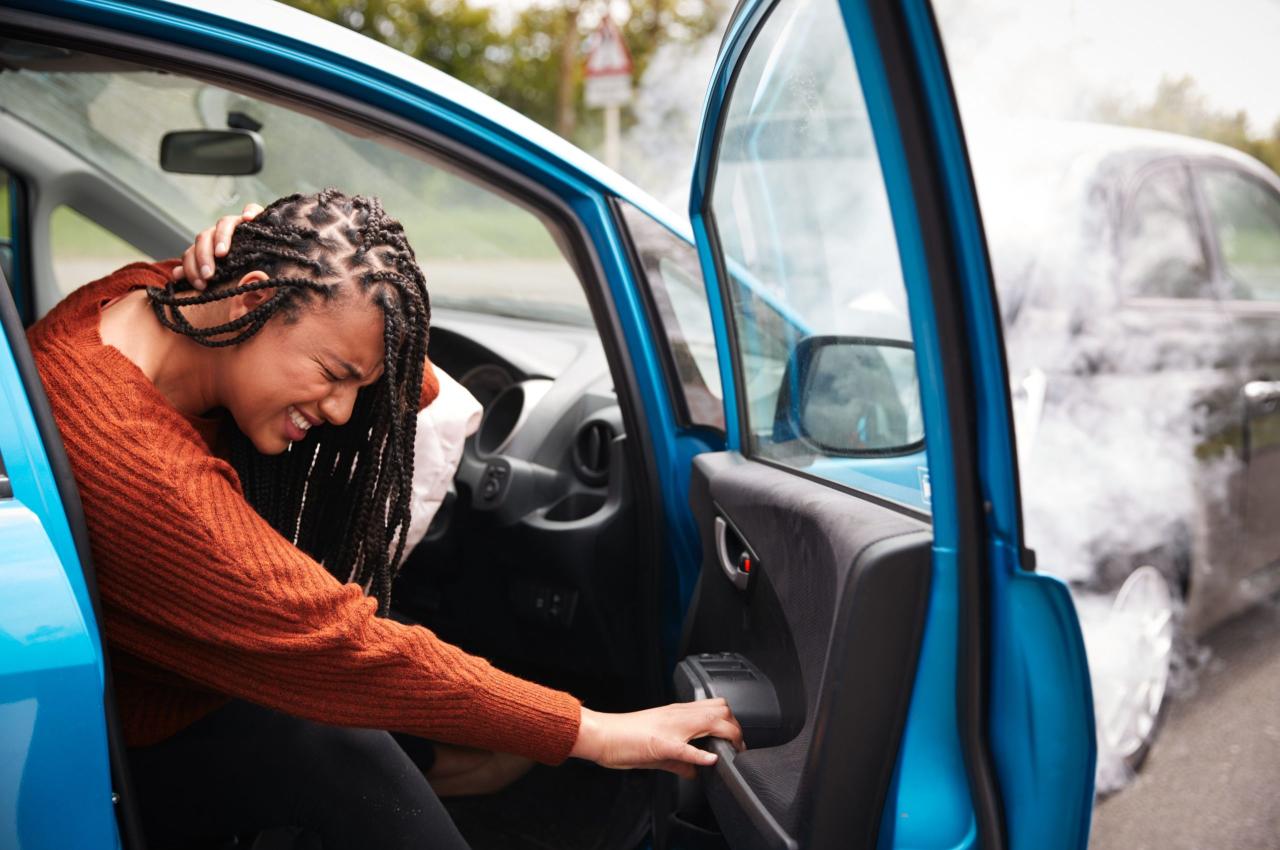
After a car accident, you may be entitled to compensation for your injuries, medical expenses, lost wages, and property damage. An Atlanta car accident lawyer can help you understand your legal options and pursue the best course of action.
Types of Legal Claims
Understanding the different types of legal claims available to car accident victims is crucial for navigating the legal process effectively.
- Negligence Claim: This is the most common type of claim in car accidents. It arises when the other driver’s carelessness or negligence caused the accident. To prove negligence, you must show that the other driver owed you a duty of care, breached that duty, and their breach directly caused your injuries.
- Strict Liability Claim: In certain situations, you may be able to pursue a strict liability claim, regardless of the other driver’s fault. This applies to defective vehicle parts or products that contribute to the accident.
- Wrongful Death Claim: If the accident resulted in a fatality, the deceased person’s family members can file a wrongful death claim to seek compensation for their loss.
Negotiating a Settlement with Insurance Companies
Insurance companies are often eager to settle claims quickly and for the lowest possible amount. It’s essential to understand the negotiation process and protect your rights.
- Gather Evidence: Collect all relevant documentation, including police reports, medical records, photos of the accident scene, and witness statements. This evidence will support your claim and demonstrate the extent of your injuries and damages.
- Know Your Policy Coverage: Review your insurance policy to understand your coverage limits and any relevant exclusions. This will help you assess the potential value of your claim.
- Consult with an Attorney: An experienced Atlanta car accident lawyer can negotiate on your behalf, ensuring you receive a fair settlement. They can also help you understand the complexities of insurance policies and identify any potential loopholes.
Preparing for a Car Accident Trial
If a settlement cannot be reached, your case may proceed to trial. Being prepared is essential for a successful outcome.
- Gather Evidence: As with settlement negotiations, gather all relevant evidence to support your case. This includes medical records, photos, witness statements, and expert testimony.
- Prepare Witness Testimony: If you have witnesses, prepare them for their testimony. Help them understand the importance of being truthful and clear in their statements.
- Practice Your Testimony: Practice your testimony with your lawyer to ensure you are prepared to answer questions clearly and confidently.
Potential Outcomes of a Car Accident Lawsuit
The outcome of a car accident lawsuit can vary depending on the specific circumstances.
- Settlement: The most common outcome is a settlement agreement reached between the parties before trial. This can involve a lump-sum payment or structured payments over time.
- Trial Verdict: If a settlement cannot be reached, the case will go to trial. The jury will decide on the liability of the parties and the amount of damages awarded.
- Appeal: Either party can appeal a trial verdict if they believe it was unjust or based on errors of law.
Preventing Car Accidents
While car accidents are often unavoidable, there are many steps drivers can take to reduce their risk of being involved in a collision. By understanding the factors that contribute to accidents and adopting safe driving practices, we can make our roads safer for everyone.
Driving Safety Tips
Following established driving safety tips is crucial to prevent car accidents. These tips address common driving mistakes and provide a framework for responsible driving behavior.
- Maintain a Safe Following Distance: Leaving adequate space between your vehicle and the one in front of you allows you to react safely to unexpected situations. A good rule of thumb is to maintain a distance of at least three seconds between your vehicle and the one ahead.
- Avoid Distracted Driving: Distracted driving, including using cell phones, eating, or attending to passengers, significantly increases the risk of accidents. It’s essential to focus solely on driving and avoid any activities that could divert your attention from the road.
- Obey Traffic Laws: Adhering to speed limits, traffic signals, and other traffic regulations is essential for safe driving. Violating traffic laws can lead to accidents and put yourself and others at risk.
- Be Aware of Your Surroundings: Constant awareness of your surroundings is critical. Scan the road ahead, check your mirrors regularly, and be aware of other vehicles, pedestrians, and cyclists.
- Avoid Driving Under the Influence: Driving under the influence of alcohol or drugs significantly impairs judgment and reaction time, making it extremely dangerous. Always choose a designated driver or utilize alternative transportation options.
- Maintain Your Vehicle: Regular vehicle maintenance is essential for safe driving. Ensure your brakes, tires, lights, and other critical components are in good working order.
Technology’s Role in Accident Reduction
Advancements in automotive technology are playing an increasingly significant role in reducing car accidents. These technologies offer features that enhance safety and assist drivers in preventing collisions.
- Anti-lock Braking Systems (ABS): ABS prevents wheels from locking during emergency braking, allowing for better vehicle control and reducing the risk of skidding.
- Electronic Stability Control (ESC): ESC helps drivers maintain control of their vehicles during slippery conditions or when they lose traction, reducing the risk of skidding and rollovers.
- Adaptive Cruise Control (ACC): ACC automatically adjusts a vehicle’s speed to maintain a safe distance from the vehicle ahead, reducing the risk of rear-end collisions.
- Lane Departure Warning (LDW): LDW alerts drivers when their vehicle drifts out of its lane, helping to prevent accidents caused by driver inattention.
- Automatic Emergency Braking (AEB): AEB automatically applies the brakes if the system detects an imminent collision, potentially preventing or mitigating the impact of an accident.
Responding to Dangerous Driving Situations
Drivers must be prepared to respond appropriately to dangerous driving situations to minimize the risk of accidents. These situations require quick thinking and decisive action.
- Aggressive Drivers: When encountering an aggressive driver, it’s crucial to stay calm and avoid engaging in any confrontations. Maintain a safe distance and avoid making eye contact. If the driver continues to behave aggressively, consider pulling over to a safe location and contacting law enforcement.
- Road Hazards: Road hazards such as debris, potholes, or slippery surfaces can pose significant risks. Reduce speed, be extra cautious, and avoid sudden maneuvers. If a hazard is unavoidable, try to brake gently and steer around it.
- Poor Weather Conditions: Driving in poor weather conditions such as rain, snow, or fog requires extra caution. Reduce speed, increase following distance, and use headlights and windshield wipers as needed. Avoid driving in severe weather conditions if possible.
Successful Road Safety Initiatives in Atlanta
Atlanta has implemented several initiatives to improve road safety and reduce the number of car accidents. These initiatives focus on various aspects of road safety, from infrastructure improvements to public awareness campaigns.
- Atlanta’s Vision Zero Initiative: The Vision Zero initiative aims to eliminate traffic fatalities and serious injuries on Atlanta’s roads. It focuses on infrastructure improvements, enforcement of traffic laws, and public education campaigns to promote safer driving practices.
- Traffic Calming Measures: Atlanta has implemented traffic calming measures such as speed bumps, roundabouts, and narrower roads in high-traffic areas to reduce speed and improve pedestrian safety.
- Public Awareness Campaigns: The city has launched public awareness campaigns to educate drivers and pedestrians about road safety, including the dangers of distracted driving and the importance of pedestrian safety.
Resources for Car Accident Victims
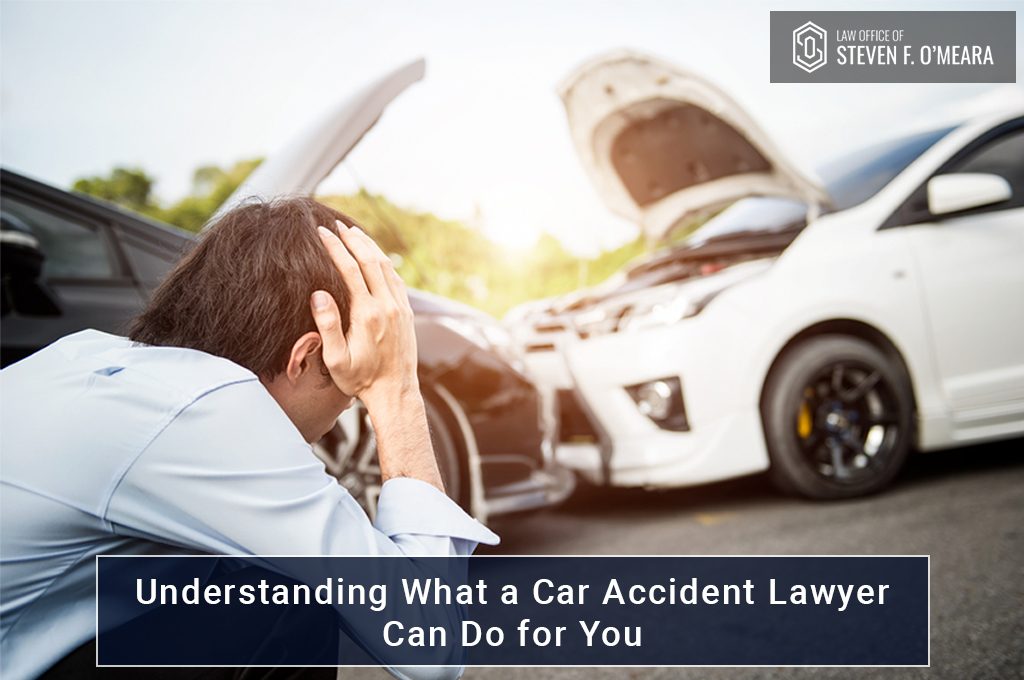
Navigating the aftermath of a car accident can be overwhelming, especially when dealing with injuries, insurance claims, and legal matters. In Atlanta, there are various resources available to support car accident victims and help them through this challenging period.
Local Resources for Car Accident Victims in Atlanta
Finding the right resources can make a significant difference in your recovery process. Here are some organizations and services available in Atlanta to assist car accident victims:
- Atlanta Legal Aid Society: Provides free legal assistance to low-income individuals, including those involved in car accidents. They can offer guidance on legal rights, insurance claims, and potential legal options.
- Georgia Legal Services Program: Offers legal assistance to low-income Georgians, including representation in car accident cases. They can help navigate the legal complexities and ensure victims’ rights are protected.
- Atlanta Bar Association Lawyer Referral Service: Provides referrals to qualified attorneys in various legal areas, including car accidents. This service can help connect victims with experienced lawyers who can assess their situation and advise on appropriate legal actions.
- Georgia Department of Transportation (GDOT): Provides information on traffic safety, accident statistics, and resources for accident victims. They also offer a “Safe Roads” program that aims to reduce traffic accidents and improve road safety.
- Atlanta Police Department: Provides accident reports, which are crucial for insurance claims and legal proceedings. They can also offer guidance on reporting accidents and navigating the aftermath.
Support Groups and Counseling Services
The emotional and psychological impact of a car accident can be significant. Support groups and counseling services can provide a safe space to process emotions, connect with others who understand, and develop coping mechanisms.
- Atlanta Trauma Support Services: Offers individual and group therapy, support groups, and resources for victims of trauma, including car accidents. They provide a safe and supportive environment for healing and recovery.
- The Georgia Crisis & Access Line: Provides confidential and free support services, including crisis intervention, counseling referrals, and information on community resources. They can offer immediate support and connect victims with appropriate mental health professionals.
- The National Highway Traffic Safety Administration (NHTSA): Offers resources and support for victims of car accidents, including information on emotional recovery, coping with stress, and accessing mental health services. Their website provides valuable information and resources for navigating the emotional aftermath of an accident.
Accessing Government Assistance Programs
Government assistance programs can help car accident victims with medical expenses, lost wages, and other financial burdens.
- Georgia Department of Human Services (DHS): Offers various assistance programs, including Medicaid, food stamps, and temporary cash assistance, to low-income individuals who meet eligibility requirements. These programs can provide financial support during the recovery process.
- Social Security Disability Insurance (SSDI): Provides monthly benefits to individuals who are unable to work due to a disability, including injuries sustained in car accidents. SSDI can provide financial security while recovering from injuries.
- Workers’ Compensation: If the car accident occurred while performing work-related duties, workers’ compensation insurance may cover medical expenses, lost wages, and other related costs. The process for accessing workers’ compensation benefits varies depending on the employer and state regulations.
Managing the Financial Impact of a Car Accident
Car accidents can have a significant financial impact, including medical bills, lost wages, and property damage. Here’s a guide to managing the financial burden:
- Keep detailed records: Maintain records of all medical bills, lost wages, property damage, and other expenses related to the accident. This documentation is crucial for insurance claims and potential legal proceedings.
- Contact your insurance company: Report the accident to your insurance company as soon as possible. They can guide you through the claims process and provide information on coverage limits and benefits.
- Negotiate with the other party’s insurance company: If the other driver is at fault, their insurance company may offer a settlement. Negotiate a fair settlement that covers all your expenses and losses.
- Consider legal representation: An experienced car accident lawyer can help navigate the legal complexities, negotiate with insurance companies, and pursue compensation for your losses. They can ensure your rights are protected and help maximize your recovery.
- Explore financial assistance options: Consider applying for government assistance programs, such as Medicaid or SSDI, if eligible. These programs can provide financial support during the recovery process.
- Budget carefully: Create a budget to manage your expenses and prioritize essential needs. Consider seeking financial counseling to develop a plan for managing debt and rebuilding your finances.
Case Studies and Examples: Atlanta Car Accident Lawyers Near Me
Real-life car accident cases in Atlanta demonstrate the crucial role of legal representation in seeking justice and recovering compensation for victims. These examples highlight how skilled Atlanta car accident lawyers can navigate complex legal processes, protect clients’ rights, and achieve favorable outcomes.
Impact of Car Accident Lawsuits on Victims and Families
Car accident lawsuits can have a profound impact on the lives of victims and their families. These lawsuits can provide financial compensation for medical expenses, lost wages, pain and suffering, and other damages.
- In one case, a young mother was severely injured in a car accident caused by a negligent driver. The accident left her with permanent disabilities and unable to work. Her lawyer successfully negotiated a settlement that covered her medical bills, lost wages, and future care. This settlement provided financial security for her and her family during a difficult time.
- In another case, a father was killed in a car accident caused by a drunk driver. His family filed a wrongful death lawsuit, which resulted in a substantial settlement that provided financial support for his children’s education and future.
These cases illustrate the importance of seeking legal advice after a car accident. An experienced lawyer can help victims understand their legal rights, build a strong case, and negotiate a fair settlement.
FAQs and Common Concerns
It’s natural to have questions and concerns after a car accident. Understanding the legal process and your rights can be overwhelming, especially when you’re dealing with injuries and the aftermath of the accident. This section addresses some common questions and concerns faced by car accident victims in Atlanta.
What Should I Do After a Car Accident?
The first steps you take after a car accident can significantly impact your legal options. Here’s a list of important actions:
- Ensure Safety: Prioritize your safety and the safety of others involved. Move your vehicle to a safe location if possible, and call 911 immediately to report the accident.
- Document the Accident: Take photos of the damage to all vehicles involved, the accident scene, and any visible injuries. Record the names and contact information of all drivers and witnesses.
- Seek Medical Attention: Even if you feel fine, it’s crucial to see a doctor. Some injuries may not be immediately apparent.
- Contact Your Insurance Company: Report the accident to your insurance company as soon as possible. Be truthful and provide all relevant details.
- Avoid Making Statements: Don’t admit fault or apologize to anyone at the scene. Avoid making any statements that could be used against you later.
- Consult with a Lawyer: It’s always wise to speak with an experienced Atlanta car accident lawyer to understand your legal rights and options.
What if I’m Not at Fault?
If you believe the other driver was responsible for the accident, you may be entitled to compensation for your injuries, property damage, and other losses. An Atlanta car accident lawyer can help you build a strong case to prove negligence and seek fair compensation.
How Long Do I Have to File a Claim?
Georgia has a statute of limitations for personal injury claims, which is generally two years from the date of the accident. It’s crucial to consult with an attorney to understand the specific deadlines and potential exceptions.
What if I’m Partially at Fault?
Georgia follows a modified comparative negligence rule. This means that even if you’re partially at fault for the accident, you can still recover damages, but your award will be reduced by your percentage of fault. For example, if you are 20% at fault and your total damages are $100,000, you would receive $80,000.
What are Common Car Accident Injuries?
Car accidents can result in a wide range of injuries, including:
- Whiplash: A common injury caused by sudden head movement during a collision.
- Back and Neck Pain: These injuries can be caused by impact forces or sudden movements.
- Head Injuries: Head injuries range from mild concussions to severe brain trauma.
- Soft Tissue Injuries: Muscles, ligaments, and tendons can be injured in a car accident.
- Fractures: Broken bones are a serious consequence of car accidents.
What are the Steps Involved in a Car Accident Lawsuit?
A car accident lawsuit typically involves several stages:
- Demand Letter: Your attorney will send a demand letter to the at-fault party’s insurance company, outlining your claim and seeking compensation.
- Discovery: Both sides will gather evidence and information through depositions, interrogatories, and requests for documents.
- Settlement Negotiations: Your attorney will negotiate with the insurance company to try to reach a fair settlement.
- Trial: If a settlement cannot be reached, the case will go to trial.
What if the Insurance Company is Not Cooperating?
Insurance companies are in business to make money. They may try to undervalue your claim or deny it altogether. An experienced Atlanta car accident lawyer can help you navigate the insurance system and fight for your rights.
How Much Will It Cost to Hire a Lawyer?
Many Atlanta car accident lawyers work on a contingency fee basis. This means you only pay a fee if your lawyer is successful in obtaining a settlement or judgment in your case. The fee is typically a percentage of the recovery.
What if I Can’t Afford a Lawyer?
There are legal aid organizations and pro bono programs that may be able to provide free or low-cost legal assistance to victims of car accidents. An Atlanta car accident lawyer can provide information about these resources.
How Long Will My Case Take?, Atlanta car accident lawyers near me
The duration of a car accident case can vary depending on the complexity of the case, the severity of your injuries, and the cooperation of the insurance company. Some cases can be resolved quickly, while others may take months or even years. An experienced lawyer can provide a realistic estimate of the timeline for your case.
Remember, after a car accident, seeking legal advice is essential. By understanding your legal options, gathering evidence, and working with an experienced Atlanta car accident lawyer, you can navigate the challenges and pursue the best possible outcome for your case. Don’t hesitate to reach out to a qualified attorney for guidance and support.
Finding a skilled Atlanta car accident lawyer can be challenging, but it’s essential for navigating the complexities of your case. Many legal professionals offer free consultations to discuss your situation and advise on your best course of action. If you’re looking for free car accident lawyers near me , consider reaching out to a few firms in the Atlanta area.
These consultations allow you to understand your legal options and determine if a lawyer is the right fit for your needs.
Finding the right legal representation after a car accident in Atlanta is crucial. Whether you’re dealing with injuries, property damage, or insurance disputes, having an experienced attorney by your side can make a world of difference. You can find a qualified lawyer to help navigate the complexities of your case by searching for lawyers for car accidents near me.
Atlanta car accident lawyers near me can provide personalized guidance and fight for your rights, ensuring you receive the compensation you deserve.
If you’ve been in a car accident in Atlanta, it’s important to have an experienced lawyer on your side. Finding the right attorney can feel overwhelming, but you don’t have to navigate this alone. Many car accident lawyers near me offer a free consultation, like those found at car accident lawyers near me free consultation. This initial meeting can help you understand your legal options and choose the best lawyer for your situation.
Remember, seeking legal advice after a car accident in Atlanta is crucial for protecting your rights and ensuring a fair outcome.

